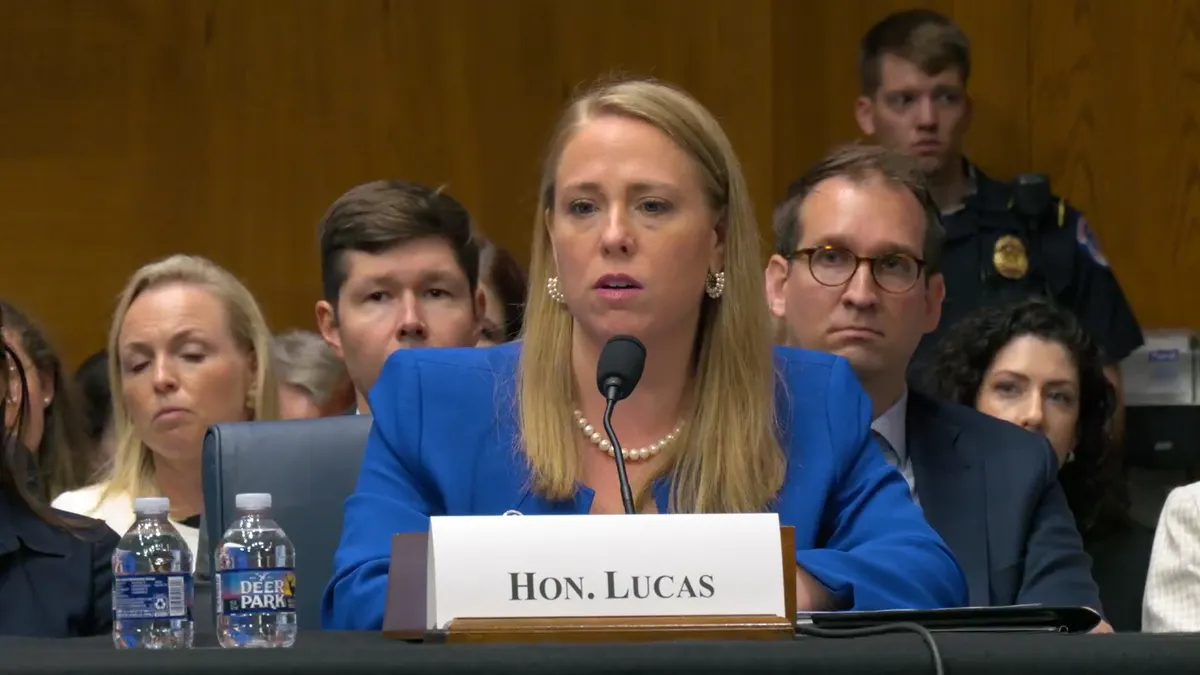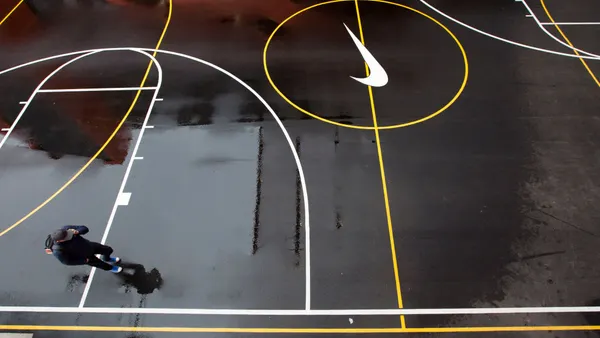President Donald Trump elevated Andrea Lucas to chair of the U.S. Equal Employment Opportunity Commission in a long-anticipated move, the EEOC announced Thursday.
Lucas has served as acting chair of the agency since January. Trump renominated Lucas to EEOC in March, and the U.S. Senate confirmed her for a new term beginning July 31 and ending in July 2030.
“Under the Trump Administration, the Commission has made significant progress advancing its core mission to uphold our nation’s civil rights laws and protect American workers through consistent, effective enforcement,” Lucas said in EEOC’s statement. “As Chair, I remain committed to enforcing the law evenhandedly, advancing equal opportunity, and upholding merit-based, colorblind equality in America’s workplaces.”
The news comes nearly a month after the Senate confirmed attorney Brittany Panuccio to a spot on the commission, restoring the agency’s quorum. EEOC’s operations are mostly on hold due to the ongoing government shutdown, but it is expected to move fast on issues such as the revocation of its Biden-era workplace harassment guidance as well as its regulations implementing the Pregnant Workers Fairness Act.
Lucas’ first months leading the agency marked a sharp decline in EEOC’s litigation activity, according to a recent analysis by law firm Seyfarth Shaw. In all, the firm found that the commission filed only 93 lawsuits in the last fiscal year, compared to 111 one year prior and 143 in its 2023 fiscal year.
But the newly elevated chair has been vocal about the agency’s new approach under the Trump administration. Lucas' influence is particularly visible in EEOC’s shift on diversity, equity and inclusion.
The commission published documents in March outlining its definition of “unlawful” DEI and how the commission plans to assess whether employers’ DEI programs are discriminatory. Around the same time, Lucas sent letters to 20 large law firms requesting information about their programs.
EEOC’s litigation also has continued, though the agency abandoned certain cases and enforcement efforts, including those involving gender identity and disparate impact. Advocates have filed lawsuits challenging the agency’s shift on these two topics and, in some cases, moved to salvage lawsuits originally brought by EEOC on behalf of plaintiffs.















